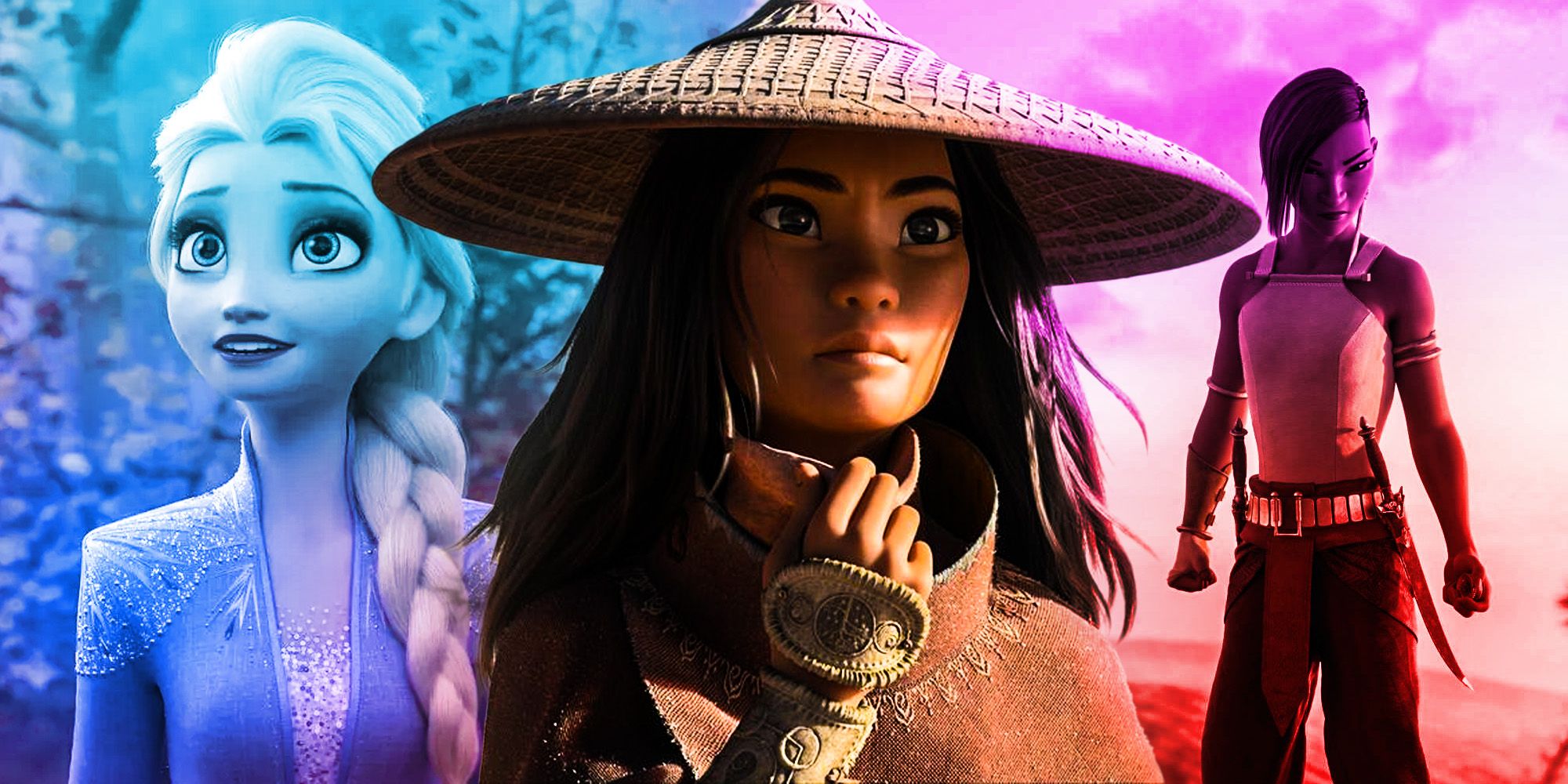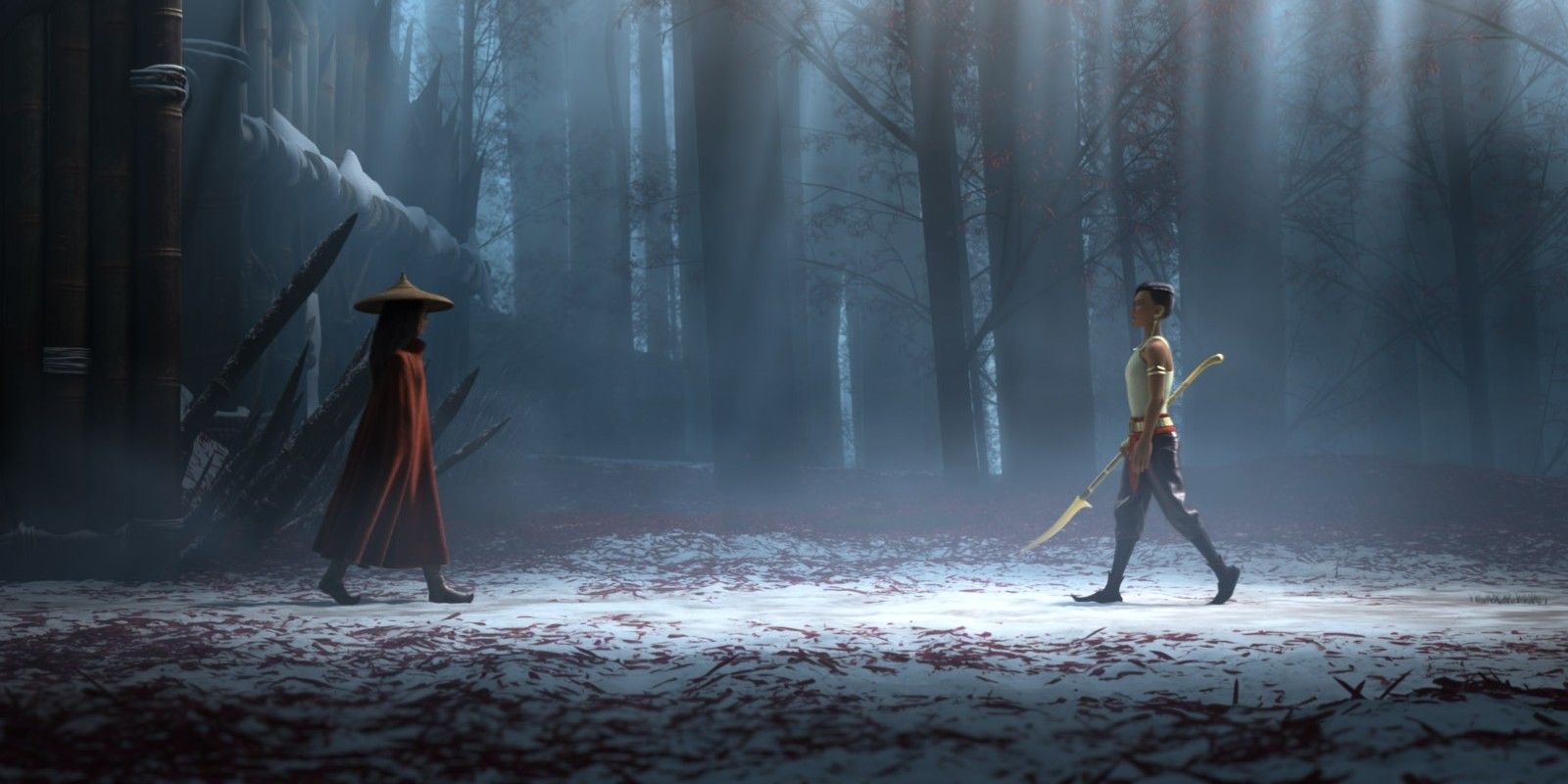Viewers of Raya and the Last Dragon are already speculating about the central character's sexuality, proving Disney is still repeating its Elsa problem. The animated film, directed by Don Hall and Carlos López Estrada, is being praised for introducing Disney's first Southeast Asian heroine. Raya, voiced by Kelly Marie Tran, serves as the primary protagonist, and a few key scenes are churning up a debate whether or not the character is gay. The lack of clarity on Disney's part shows they didn't learn from Frozen's Elsa, nor the obvious lack of LGBTQ+ representation.
Raya and the Last Dragon follows the fictional world of Kumandra, a kingdom comprised of five distinct regions based on Southeast Asian cultures. Raya, the princess of Heart, makes it her mission to find the last surviving dragon, Sisu (Awkwafina), after the evil Druun monsters return and decimate the land. On her journey to collect all pieces of the Dragon Gem, an orb possessing the power to revive the population, Raya encounters Namaari (Gemma Chan), a rival warrior princess from Fang. The two women are initially enemies until Namaari pushes aside her views to join Raya's world-saving mission.
Although Raya and Namaari are first pinned as enemies, there's a hint of romantic flirtation between the two figures in Raya and the Last Dragon. While speaking in an interview (via Vanity Fair), Kelly Marie Tran confirmed her belief that Raya is gay, adding she voiced the character as if there were "some romantic feelings going on there.” While it's great Tran made it a point to address the lack of LGBTQ+ representation among heroines, especially depicted in animation, this continues the trend of Disney issues which made headlines through the criticism surrounding Elsa in Frozen.
Disney Is Still Behind The Times With LGBTQ+ Representation
Elsa's sexuality has been a topic of discussion since the release of Disney's Frozen in 2013. Frozen II brought back the debate when Disney failed to address if Elsa is gay despite an outcry from fans regarding clarification. With Disney's track record, this was another example of the studios' "queer-baiting" method of glossing over important representation or implying rather than proudly confirming a specific character's sexuality. Aside from Elsa's ambiguous sexual orientation, Disney recently drew criticism for Star Wars: The Rise of Skywalker's blink-and-you'll-miss-it gay kiss and playing it too safe with Valkyrie's alleged bisexuality in the MCU. Both Star Wars and Marvel, of course, are under the umbrella of Disney.
Interestingly, Tran stated, "it might get me in trouble for saying that, but whatever" when discussing her thoughts on Raya's sexual orientation. This insinuates Disney chose not to clarify the matter and failed to acknowledge how simply implying something isn't a powerful enough message. Instead of continuously tip-toeing around LGBTQ+ representation, Disney needs to make these crucial aspects of identity more clear. There's no question Disney a few steps behind when it comes to representation, but if they want to continue catering to more communities, it's time to take a stand. Though Raya and the Last Dragon contains many positive attributes, the film is emerging as another missed opportunity for Disney as the House of Mouse again shies away from impactful LGBTQ+ representation.


